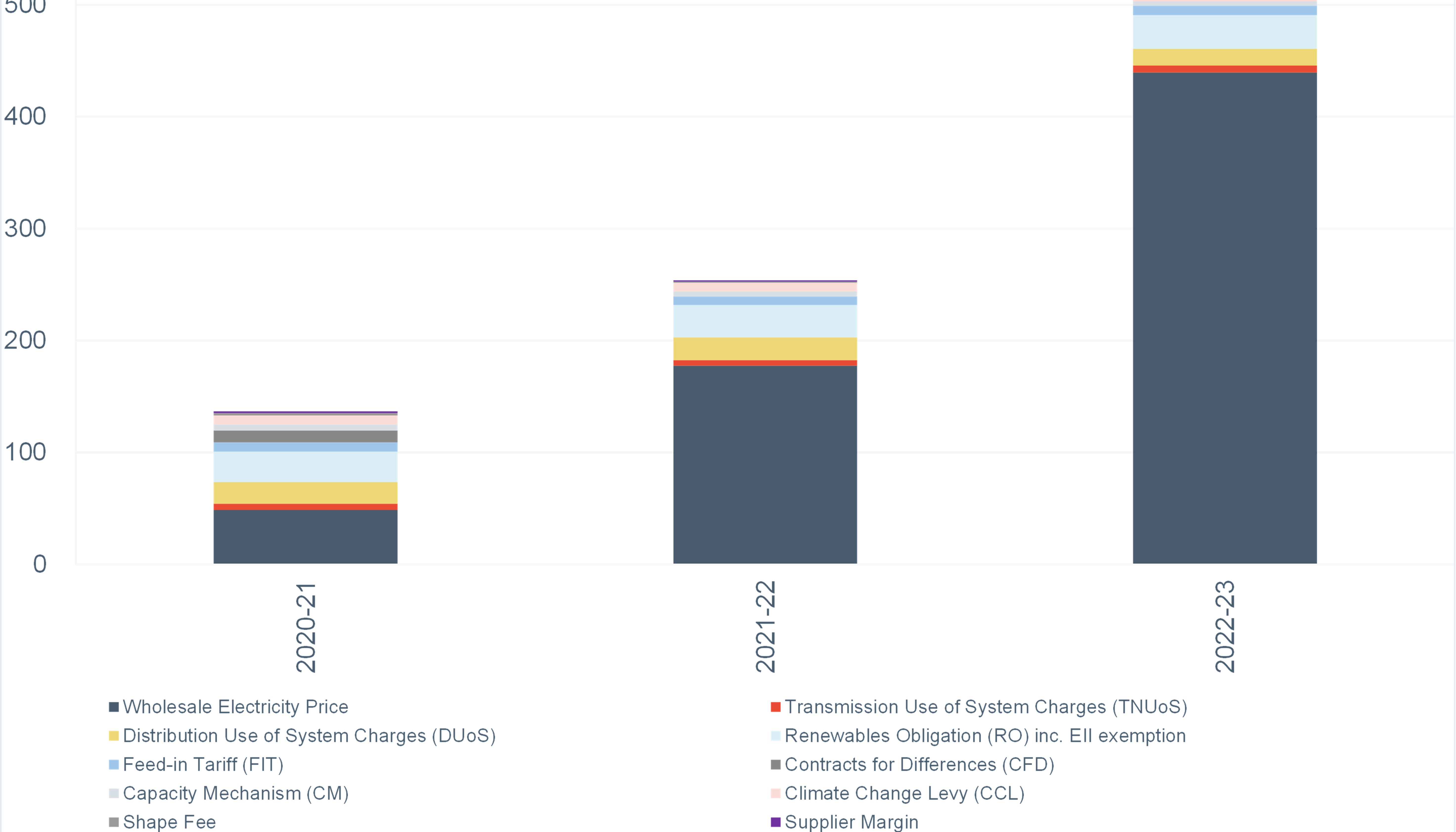Businesses in the UK will see their energy bills rocket when new contracts are negotiated in October1 according to data from Cornwall Insight. Some will face bills five times their current price, as concerns over Russian gas supply, tight electricity markets in Europe, and a global disruption to Liquified Natural Gas see prices spike.
Business energy prices have been surging for 15 months with increases proportionately higher than those experienced by households under the Default Tariff Cap (price cap). Those who negotiated two-year fixed price contracts in summer 2020, are potentially facing a substantial fivefold rise in October, with those renewing an annual contract due to see bills twice what they paid this year, which in turn was double what had been seen during 2020-21.
It is feared, higher energy costs could force business closures, with the corresponding job losses reverberating throughout the economy.
While the business energy markets have so far managed to cope with the price increases already experienced, it is feared that October’s increase in bills coupled with the other economic concerns being seen in the market, could tip businesses over the edge. This is particularly true for certain firms whose profitability is most exposed to energy cost increases, including hospitality, leisure, retail and many in the industrial sector. Some of these sectors are concentrated in regions that have been positioned in the UK Government’s Levelling up agenda, which could damage any efforts to boost productivity and raise living standards in these areas.
Suppliers’ reluctance to take on new customers and the struggles of brokers and intermediaries to secure the quantities of quotes for their clients that they have been used to are sign posts of where the business energy sector could be heading. With businesses potentially struggling to get credit insurance, which limits business risk, increasing supplier concerns.
Robert Buckley, Head of Relationship Development at Cornwall Insight said:
“Business energy prices have climbed considerably in the past 15 months, and they stand on the verge of another significant steep uplift when new contracts come in to place for the period from 1 October 2022.
“Logic dictates that there can only be so long that so many businesses can pay so much more for their energy without knock-on consequences for themselves, their suppliers, and the wider economy, and if we at Cornwall Insight are correct there will be no return to 2020-21 wholesale prices before 2030. Despite this, in contrast to households, there has been strikingly little said about the affordability of business energy bills.
“We must think much harder about what this energy crisis is doing to business. This is not only to ensure we don’t see loss of output, but so we don’t see companies with heritage, roots in their communities and otherwise good prospects washed away. Such an outcome would have consequential impacts on real people and families not just company balance sheets and GDP statistics. Yet the level of action by government is surprisingly small given their wider economic agenda could be at stake.
“We are simply not having the essential conversations in Great Britain on relief for, or of, structured energy savings from businesses. We must ask ourselves whether we should be following the example of countries such as Germany, who are talking about the potential for rationing energy and taking energy savings measures now.
“But what else can be done? Opening a scheme where businesses could get paid to not use energy at peak times would be a start. After all we know what triggers winter demand peaks even if we do not know exactly when they will occur. Not only could such a scheme properly value demand response but there would be significant carbon savings too as fossil fuel generation would not need to run.”



























